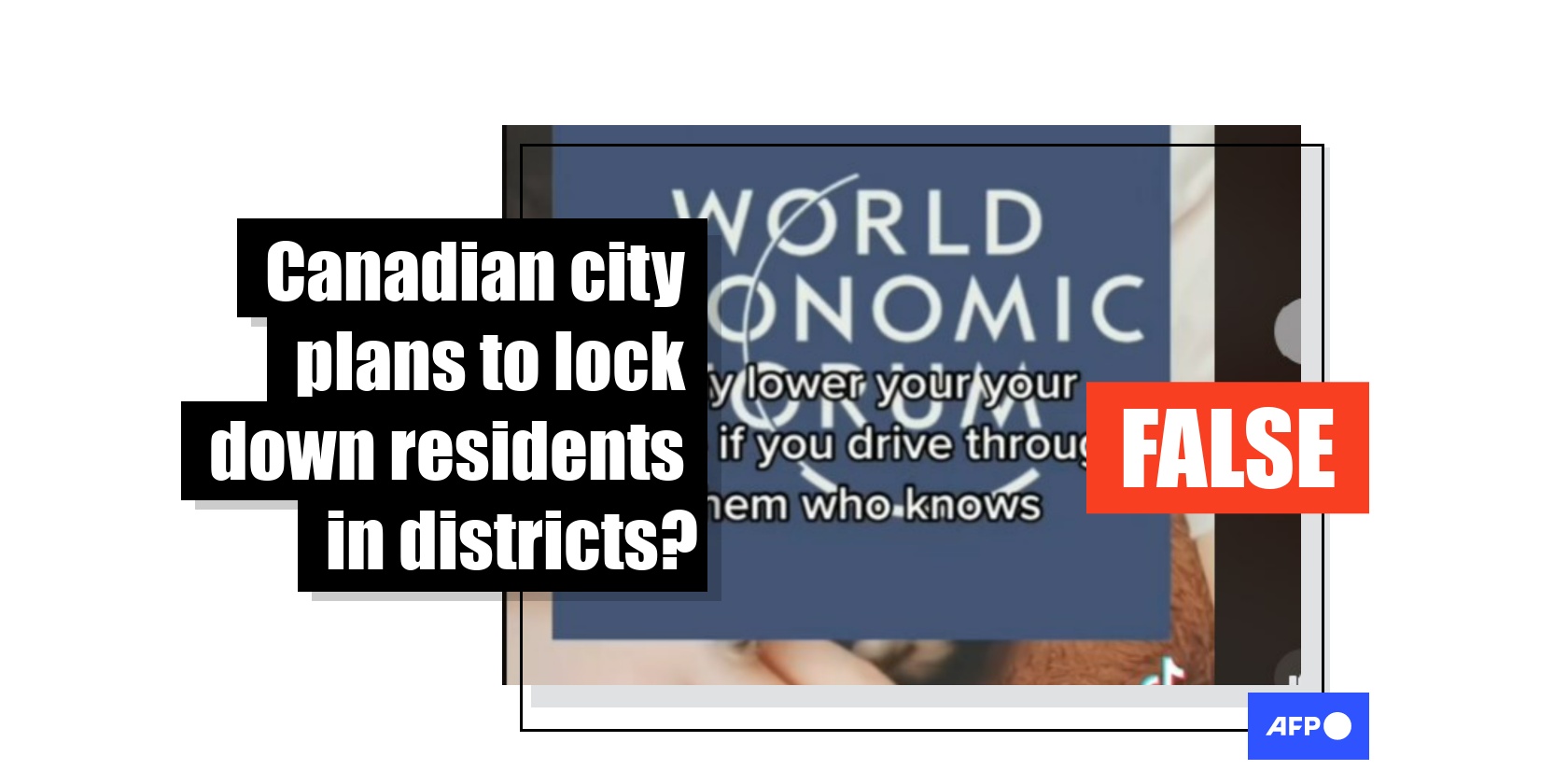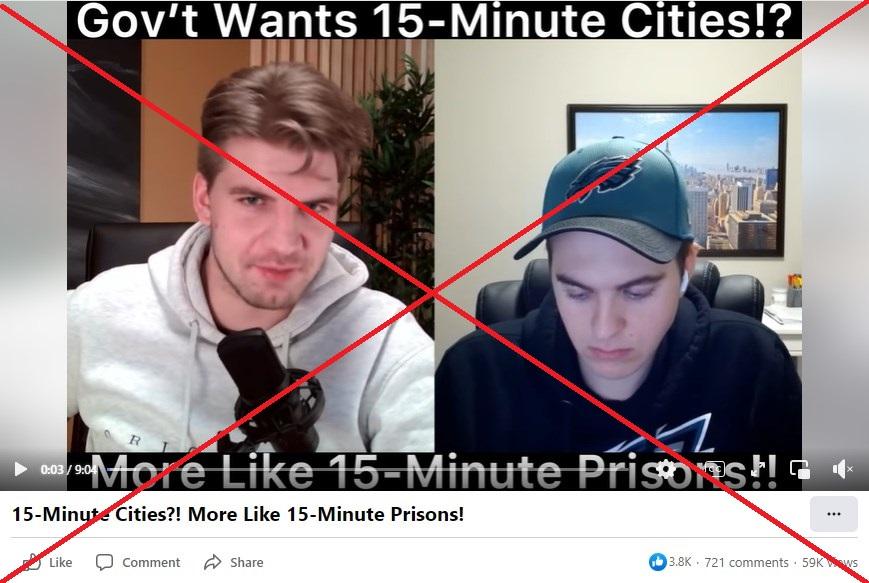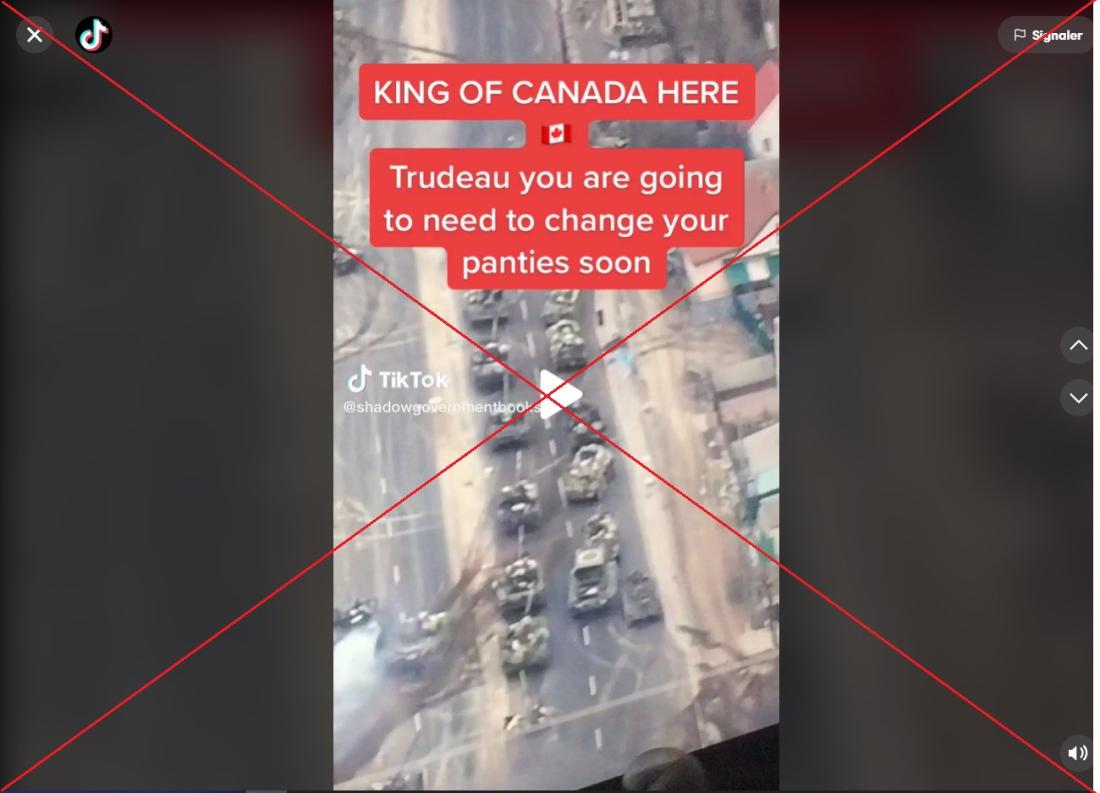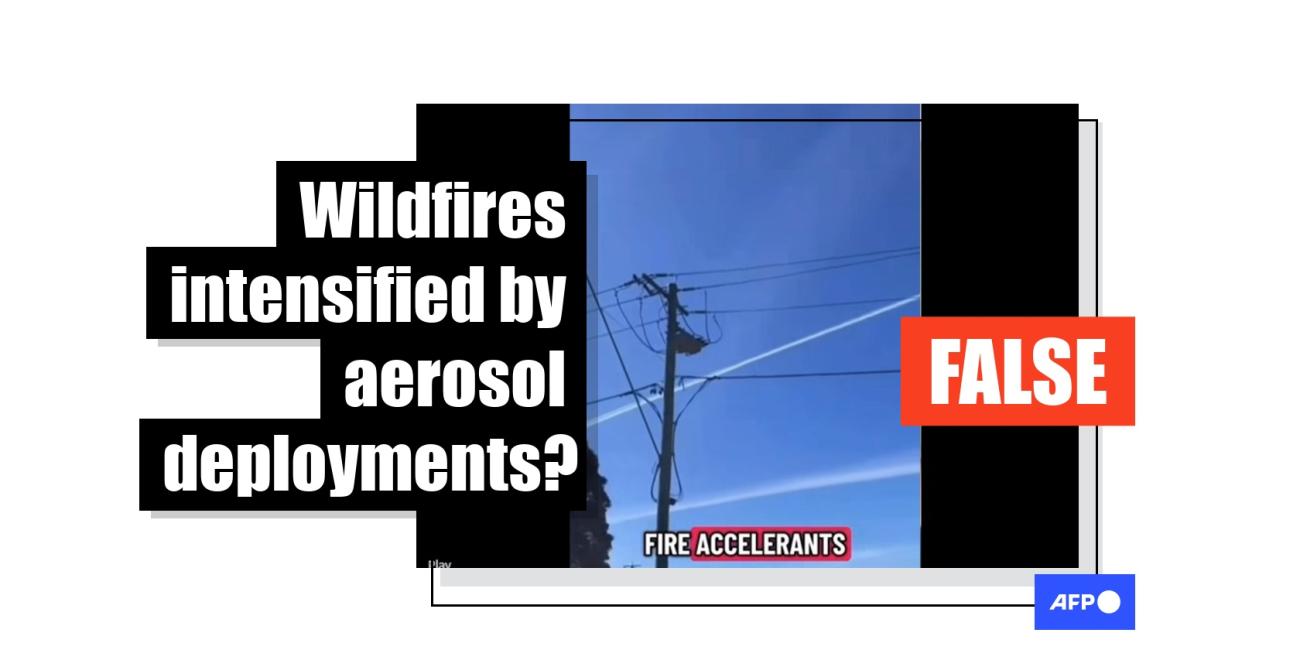
Videos falsely claim Edmonton is planning climate lockdowns
- This article is more than three years old.
- Published on February 9, 2023 at 20:03
- Updated on February 10, 2023 at 16:46
- 4 min read
- By AFP Canada
"You can't leave a 15-minute city whenever you please ... The city walls or restrictions or zones or whatever you want to call them won't be used to keep others out, they'll be used to lock everyone in," says commentator Tanner Hnidey, who has previously promoted misinformation, in a video viewed more than 59,000 times on Facebook.

In 2020, Edmonton announced plans to make amenities such as parks and grocery stores accessible within a 15-minute walk or transit trip. The scheme involves creating 15 districts across the city.
Similar initiatives exist in Paris, Melbourne and Copenhagen. The United Nations, World Economic Forum (WEF) and C40 cities alliance have all championed the idea.
They cite the lifestyle changes prompted by the Covid-19 pandemic as a key driver of the initiatives -- a link that has fueled misleading claims of "climate lockdowns." AFP previously debunked allegations of a "climate lockdown trial" in the United Kingdom.
The more recent claims about Edmonton are also false.
"District Planning will support better access and movement throughout the city by enabling more transportation options within and between districts," said Shauna Kuiper, the city's general supervisor for district planning, in an email on February 6, 2023. "There are no measures in place to restrict movement to other districts."
Sandeep Agrawal, director of the School of Urban and Regional Planning at the University of Alberta, also said there are no grounds "whatsoever" for claims that the plan would implement such restrictions. He noted that section six of the Canadian Charter of Rights and Freedoms protects freedom of mobility.
"The 15-minute plan intends to provide better connectivity to the rest of the city," Agrawal told AFP in a February 8 email. "District planning is an ongoing process which involves consultation with the public at various points of its development."
Edmonton Mayor Amarjeet Sohi was elected in 2021 after discussing the plan in his manifesto.
Carbon emissions
Plans for 15-minute neighborhoods are part of a broader movement to reduce cities' carbon emissions and their contribution to climate change.
However, some posts misleadingly claim Edmonton's plan will track people's movements to measure their carbon emissions.
"It means everything you do needs to be within 15 minutes of where you're living ... I think that limits the amount of fuel you're allowed as well, to reduce your carbon footprint," says a speaker in a TikTok video posted January 31 on Facebook. "Apparently Edmonton is the test ... and then that's going to go across Canada."
The narrator blames the reforms on Prime Minister Justin Trudeau and "his World Economic Forum intentions" -- a reference to the global body that is a frequent target of conspiracy theories.

The plan is not a federal initiative, however -- Edmonton authorities are executing it. In 2022, they held a series of public consultations and online surveys to gather residents' feedback.
Another TikTok video linked the city planning proposal to MyAlberta Digital ID, an application for accessing regional government services.
"Once they start digitizing things and once you have a registered digital ID, the reason that they are starting these smart cities is for a carbon footprint on each individual," a speaker says in the January 29 clip. "So you won't be able to drive and if you do you're going to max out your carbon footprint, so you won't be able to eat beef if you've driven too far."
But the reforms are not linked to the province-wide service -- and the application does not collect carbon emissions data.

"Information about users and their online activity is never stored or tracked," said Melissa Crane, Alberta's press secretary for technology and innovation, in a February 8 email. "(The application) does not collect carbon-footprint information and is not related to the City of Edmonton's district planning."
Kuiper of the Edmonton city government said the 15-minute plan's goal is to create "a more connected, prosperous, healthy and climate resilient city."
"It is not about restricting movement, monitoring people or tracking an individual's carbon emissions," she said.
The 15-minute city concept is attributed to Carlos Moreno, a computer scientist and entrepreneur based at Paris's Sorbonne University.
Moreno told AFP it aims to "face up to our ecological, economic and social challenges" by reducing car use and commuting times.
"Never have there been proposals for restrictions -- on the contrary, this is a new opportunity: more choice, more services, more desire to thrive in one's neighborhood while having the choice to go where we please," he said in an email.
"Since the start of 2023, the concept of the 15-minute city has been subject to conspiracy theories, produced and shared by people already well-known for spreading disinformation about Covid, the climate, vaccines and politics."
All of AFP's reporting on misinformation in Canada is available here.
February 10, 2023 This article was updated to add details about Edmonton's mayor and quotes from Carlos Moreno.
Copyright © AFP 2017-2026. Any commercial use of this content requires a subscription. Click here to find out more.
Is there content that you would like AFP to fact-check? Get in touch.
Contact us




